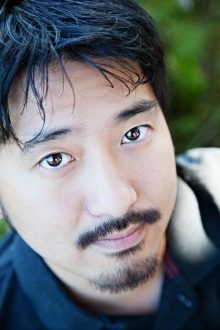Way Sung, Ph.D.

Way Sung, Ph.D.
Mutations are the primary source for genetic variation, driving the evolutionary process, but also is responsible for genetic disease. The raw input of mutations is determined by DNA synthesis, proofreading, and repair, and these pathways are highly conserved. However, mutation rates vary by four orders of magnitude across the tree life, indicating that these pathways have evolved different levels of efficiency. Moreover, the types of mutations detected by DNA repair differ across different species, nucleotide contexts, and specially across a genome.
To further our understanding of the mechanisms driving the variation in mutation rate, my lab focuses on novel approaches to reprogram DNA replication fidelity in eukaryotic organisms, study the effect that mutations have on an organism, and measure spatial temporal variation in mutation rate. This work has important implications in how we understand cellular fidelity, cell longevity, and cancer formation.
Current projects:
- CRISPR-cas9 to Reprogram yeast DNA replication fidelity using naturally existing, high-fidelity DNA replication enzymes found in Paramecium tetraurelia.
- Third-generation Droplet Digital Polymerase Chain Reaction to model the distribution of fitness effects of mutations and investigate how selection operates to refine replication fidelity based on mutational input.
- Investigate the mechanisms driving spatiotemporal variation in mutation rate within mutation accumulation lines of alphaproteobacteria containing multiple chromosomes.
Selected Works:
- Long, H., W. Sung, S. Kucukyildirim, E. Williams, S. F. Miller et al., 2018 Evolutionary determinants of genome-wide nucleotide composition. Nat Ecol Evol 2: 237-240.
- Sun, Y., K. E. Powell, W. Sung, M. Lynch, M. A. Moran et al., 2017 Spontaneous mutations of a model heterotrophic marine bacterium. ISME J 11: 1713-1718.
- Lynch, M., M. S. Ackerman, J. F. Gout, H. Long, W. Sung et al., 2016 Genetic drift, selection and the evolution of the mutation rate. Nat Rev Genet 17: 704-714.
- Sung, W., M. S. Ackerman, S. F. Miller, T. G. Doak and M. Lynch, 2012a Drift-barrier hypothesis and mutation-rate evolution. Proc Natl Acad Sci USA 109: 18488-18492.
- Sung, W., A. E. Tucker, T. G. Doak, E. Choi, W. K. Thomas et al., 2012b Extraordinary genome stability in the ciliate Paramecium tetraurelia. Proc Natl Acad Sci USA 109: 19339-19344.
- Fonseca, V. G., G. R. Carvalho, W. Sung, H. F. Johnson, D. M. Power et al., 2010 Second-generation environmental sequencing unmasks marine metazoan biodiversity. Nat Commun 1: 98.
- Li, W., A. E. Tucker, W. Sung, W. K. Thomas and M. Lynch, 2009 Extensive, recent intron gains in Daphnia populations. Science 326: 1260-1262.
- Denver, D. R., P. C. Dolan, L. J. Wilhelm, W. Sung, J. I. Lucas-Lledo et al., 2009 A genome-wide view of Caenorhabditis elegans base-substitution mutation processes. Proc Natl Acad Sci USA 106: 16310-16314.
- Lynch, M., W. Sung, K. Morris, N. Coffey, C. R. Landry et al., 2008 A genome-wide view of the spectrum of spontaneous mutations in yeast. Proc Natl Acad Sci USA 105: 9272-9277.